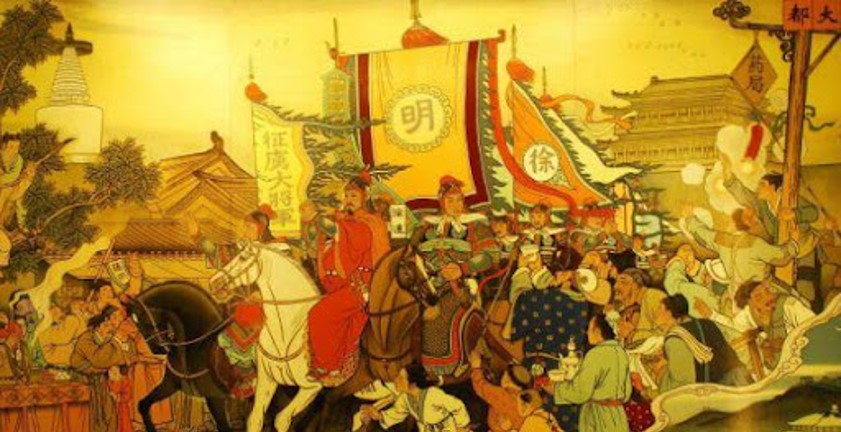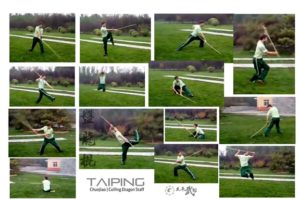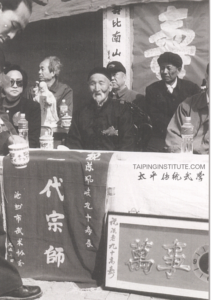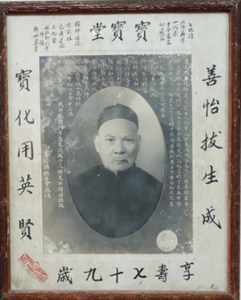Tantui Men is quite an old system. It has a foundation set known as Tantui which has been adopted by many different martial arts and groups. However, since only that set was adopted, it has encountered many modifications and mis-interpretations of its combat applications.
Da Liuhe Men is one of the the most venerated martial arts in Cangzhou, its founder studied at the nearby village for most of his youth the Tantui system before later entering the study of Liuhequan and many other methods. Then establishing the powerful Chengxing Logistics Security Bureau. As a result it retained the Tantui system in tact and until today the families of the original Tantui village still are in contact.
That village ln the outskirts of greater Cangzhou was created by the settlement of the descendants of Chang Yuchun, which later were separated into three families Chang, Cui and Hui. Those Hui now recorded for over 23 generations and 3,000 people. The family had settled in the village so it was called Huijiachu Village, over 600 years ago. The Ming Taizu, Zhu Yuanzhang had recognized the family and therefore it reach prosperity. The saying Tantui comes from the Jiaomen (Moslem) is due to Hui family practising for generations and the Tantui set being taught in mosques across the areas of Zhili/Hebei and Shandong.
Chang Yuchun, from the year 1355 onwards was attached to Zhu Yuanzhang as a vanguard and they fought hard to overcome the Yuan soldiers and the warlords along the way. In the second year of Hongwu’s Northern Expedition to the Central Plains. Undefeated in battle and supreme general he was part of the change in the course of history. He died of illness at the age of forty.
The Tantui system includes the two man matching set of practise to Tantui, from there many of the mis-interprations are understood. The practise applies the San Pan principle, 3 layers/levels where the distances and heights are considered. There are many different boxing sets within Tantui including 18 sequences of cannon smashes, Dasheng, Zhongwu Boxing, Taizu boxing ….as well as weapons like wansheng saber, Kaiping Spear, luhu Spear, Qinglong Ji, Fengchi Tang, etc…many have matching applications and are practical for combat.
In recognition of his contributions, Chang Yuchun’s family were rewarded with lands and he was posthomously called Kaiping King. Often these histories are lost in the martial arts, so we share a little here:
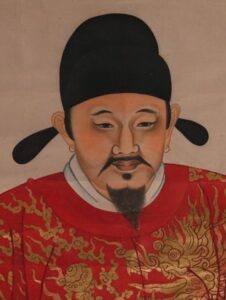
Chang Yuchun born in a farming village in Huanyuan county (today in Anhui) was physically potent, unparalleled in courage, with long and ferocious arms, and commanded the army well. He loved martial arts from a young age and mastered different weapons combat at the time, he did not want to remain a peasant so he was under Liu Ju’s training and command at the beginning of 1352, and later realized that Liu Ju could not succeed. He also heard that Zhu Yuanzhang, who was in Hezhou, was kind and powerful, and his troops were well-regulated, so he led more than ten people alone to join Zhu Yuanzhang. In June of 1355, Chang Yuchun followed Zhu Yuanzhang across the south of the Yangtze River, participated in the battle of Caishi (south of today’s Ma’anshan City), and pushed towards Niuzhuji. Zhu Yuanzhang ordered him to charge forward, Chang Yuchun took the order, swung his Ge (spear with hook blade) and charged forward. The Yuan soldiers attempted to offset his charge, Chang Yuchun took advantage of the momentum, jumped onto the rocky rock, and further charged into the enemy’s line, the Yuan army fled in anticipation.
The generals took advantage of the victory and went ashore to attack, so they conquered quarrying and captured Taiping. Chang Yuchun was awarded the Pioneer of the General Manager’s Mansion and promoted to the general manager and governor. At that time, the wives, children and belongings of Zhu Yuanzhang’s soldiers were all in Hezhou, and the barbarian Hai Hague, the prime minister of Yuanzhong, once again used the navy to attack and quarry stones, which blocked Zhu Yuanzhang’s army’s way back to Hezhou. Zhu Yuanzhang personally led the army to attack, and sent Chang Yuchun to deploy troops everywhere to confuse the Yuan army and disperse the strength of the Yuan army. After the rendezvous of the two armies, Chang Yuchun manipulated a light boat to divide the barbarian Hai Hague’s fleet into two, and then stormed from the left and right sides, defeated it, captured all his ships, and the river road was unimpeded again. Then he was ordered to garrison Liyang. In February of the following year, he joined Zhu Yuanzhang to attack Jiqing and made the greatest contribution.
After capturing Jiqing, Chang Yuchun joined Xu Da to capture Zhenjiang and enter Changzhou. Zhang Shicheng’s army besieged Xu Da in Niutang, and Chang Yuchun went to rescue him, captured the enemy general, and was promoted to the commander-in-chief of the army. The following year, he conquered Changzhou and was promoted to Generalissimo of the Central Wing. He then attacked Ningguo and was shot by a flying arrow. After covering his wounds, he continued to fight and conquered Ningguo. In addition, he captured Matuosha and Chizhou with his navy, and was promoted to the governor of the province, the generalissimo of the Mabu Navy. He also captured Wuzhou, transferred to Tongqian Privy Council, and stationed in Wuzhou. In July of 1359, Chang Yuchun led his troops to attack Quzhou. First, he sent surprise troops to break into the small city surrounding the south gate, destroying the enemy’s weapons, and then launched a fierce attack, breaking the city and capturing ~10,000 soldiers. In November of the same year, he joined with Xu Da to capture Zhao Pusheng’s water village, defended Chizhou, and defeated Chen Youliang’s guards at the foot of Jiuhua Mountain. He beheaded ~10,000 people and captured ~3,000 people alive. Chang Yuchun said: “This is a strong army, if you don’t kill it, it will cause future troubles.” Xu Da thought it was impossible, so he reported it to Zhu Yuanzhang. However, Chang Yuchun had killed more than half of the prisoners at night, and Zhu Yuanzhang was not happy, so he released all the other prisoners.
In 1360, Chen Youliang invaded Longwan, Chang Yuchun set up an ambush with the Fifth Route Army, defeated Chen Youliang’s army, and regained Taiping. Zhu Yuanzhang led the army to pursue Chen Youliang to Jiangzhou, and ordered Chang Yuchun to stay behind. He enforced the law strictly, and the soldiers and civilians in the city were orderly and did not dare to offend. Following the attack on Anqing, Chen Youliang’s army went out of the river to intercept everywhere. Chang Yuchun led his army to attack. Chen Youliang’s army hurriedly turned around and fled. General Li Bosheng broke through and fled. Afterwards, Chang Yuchun’s army was ordered to reinforce Anqing City. Prior to this, among the generals appointed by Zhu Yuanzhang, Pingzhang, Shaorong, You Cheng, Xu Da and Chang Yuchun had the most credit. At this time, Shao Rong and Zhao Jizu, who participated in politics, conspired to set up an ambush and launch a mutiny. After the incident was exposed, Zhu Yuanzhang wanted to pardon Shao Rong’s death crime. Chang Yuchun said bluntly: “A minister who has been charged with treason, what else can be forgiven? I will never live with that.” Zhu Yuanzhang gave Shao Rong a drink and executed him with tears, because of this incident, Zhu Yuanzhang relied more on Chang Yuchun.
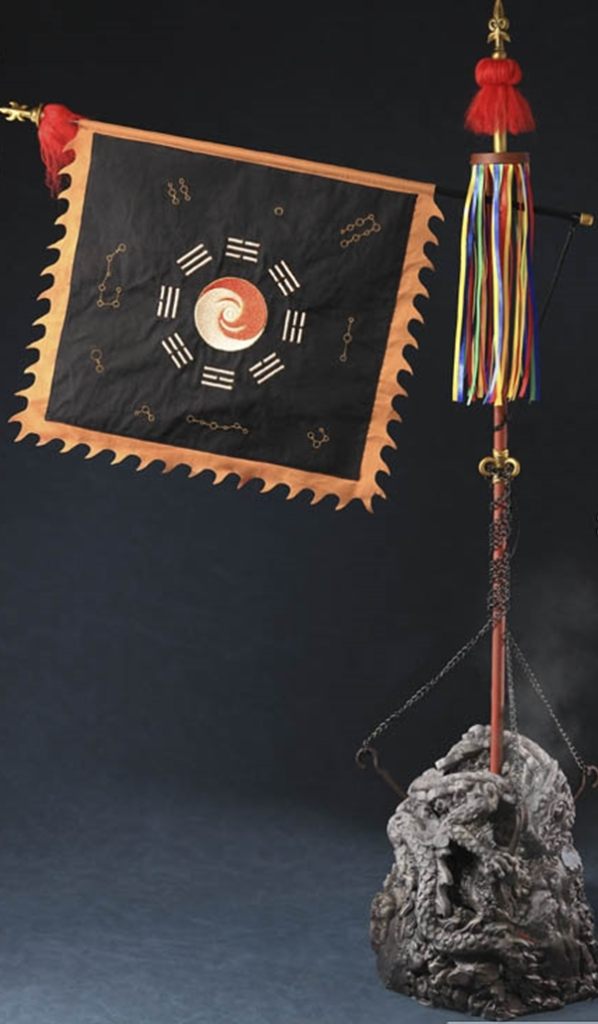
Chizhou guard Luo Youxian occupied Shenshanzhai and had an affair with Zhang Shicheng. Chang Yuchun defeated and beheaded him. In the 1363, he followed Zhu Yuanzhang to rescue Anfeng. When Chang Yuchun led his army to arrive, Lu Zhen had captured Anfeng and killed Liu Futong. Both the left and right armies failed to attack, and Chang Yuchun struck across the enemy’s line, winning three battles and capturing countless soldiers and horses. Then joined Xu Da to besiege Luzhou. When the city was about to be breached, Chen Youliang besieged Hongdu, and Chang Yuchun was called back to meet Chen Youliang’s army at Kanglang Mountain in Pengli. Chen Youliang has a big ship and is in the upper class, and the forward is very powerful. Chang Yuchun joined forces with all the generals to go into battle, their voices were earth-shattering, and one of them was as good as a hundred. Chen Youliang’s subordinate Zhang Dingbian rushed straight to Zhu Yuanzhang’s command ship. The ship ran aground, and Zhu Yuanzhang was in a very dangerous situation. Chang Yuchun stabbed Zhang Dingbian, and Zhu Yuanzhang’s vessel escaped, but Chang Yuchun’s vessel ran aground again. At this time, a broken vessel went down the current and collided with Chang Yuchun’s boat, and was able to leave. After three days of fighting, fire was set to the vessels of Chen Youliang’s army, and the lake turned red. Chen Youliang dared not fight again. The generals thought that Chen Youliang’s army was still strong and wanted to let them go, but Chang Yuchun remained silent. When the vessel left the mouth of the lake, the generals were about to let the vessel down, but Zhu Yuanzhang ordered the upstream to be controlled. Chang Yuchun went back up the river, and the generals followed. Chen Youliang was desperate and led a hundred ships to break through. The generals intercepted Chen’s army halfway, and Chen Youliang’s army fell apart. Chen Youliang died in battle, which is known as the “Battle of Poyang Lake” in history. After returning to the teacher, Chang Yuchun made the most contributions, and Zhu Yuanzhang rewarded him with a lot of gold, cloth and lands for his families. When attacking Wuchang, Zhu Yuanzhang returned to Yingtian and ordered Chang Yuchun to leave the warlord to besiege Wuchang. Chang followed Xu Da on a military campaign north and conquered the Yuan capital, Khanbaliq, in the following year, thereby ending Mongol rule in China
In 1369, Chang died of illness on the return journey to Nanjing in the east of present-day Xuanhua County, Hebei.
When Zhu Yuanzhang heard of Chang’s death, he wrote a poem mourning Chang and posthumously granted Chang the title Kaping King, and named Zhongwu.
He had three sons whom were well taken care of by Zhu Yuanzhang but later the grandson of Zhu was not in good terms leading to the family spreading adopting different names into different areas such as around Hongdong and then village in Hebei Cangzhou. For this reason there is the Kaiping Spear and Zhongwu boxing set in Tantui Men.
Thus to some Tantui contains the remnants of a great and sometimes vicious warrior, Chang Yuchun.

